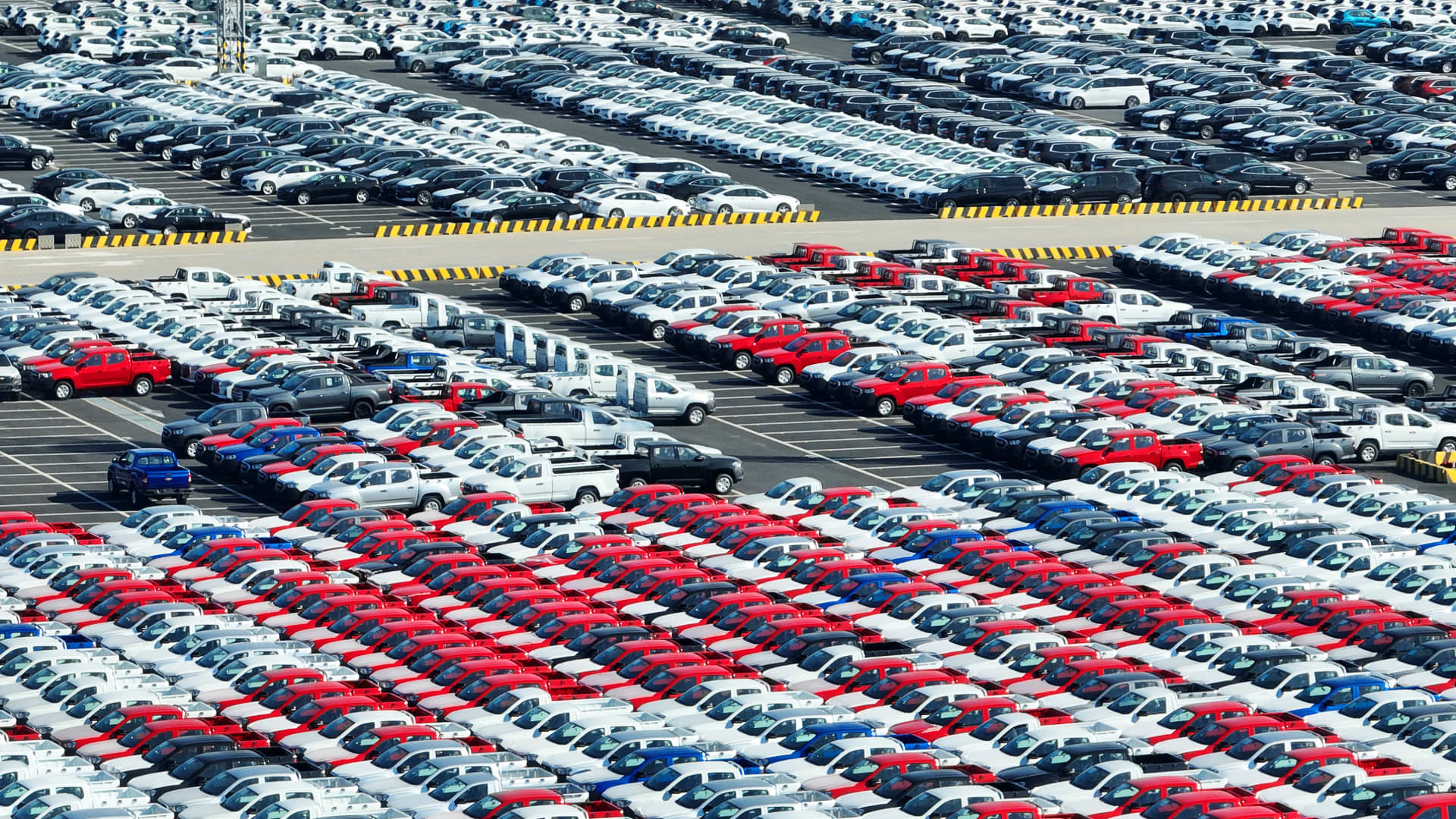The European Union will need to levy higher-than-expected tariffs of up to 55% on Chinese electric vehicles to curb their imports into the bloc, according to a new analysis by Rhodium Group.
The findings, released Monday, come amid the EU’s ongoing anti-subsidy investigation into EV imports from China.
Rhodium Group, which expects the EU to impose tariffs in the 15% to 30% range on Chinese EVs, said those tariffs were unlikely to be enough to check competition from China.
“Even if the duties come in at the higher end of this range, some China-based producers will still be able to generate comfortable profit margins on the cars they export to Europe because of the substantial cost advantages they enjoy,” the report said.
Chinese companies such as BYD, which toppled Tesla to become the world’s largest EV manufacturer last year, can sell cars at much higher rates and profit margins in regions such as the EU compared with the domestic market, despite paying a 10% tariff rate. Chinese EV makers are locked in an intense price war in their home market.
BYD’s Seal U model, which sells for 20,500 euros in China and 42,000 euros in the EU, generates an estimated profit of 1,300 euros in its home market versus 14,300 euros per car in Europe, Rhodium said. Even after 30% in tariffs, a company like BYD will make a higher profit in the EU, it added.
The report said that BYD will likely need to cut prices to meet its goals of gaining more market share in the EU. A 30% tariff rate would still leave enough room to do so.
“Much steeper duties of around 45%, or even 55% for fiercely competitive producers like BYD, would probably be necessary in order to render exports to the European market unappealing on commercial grounds,” the report said.
The EU investigation
The European Commission, the executive arm of the EU, launched a probe into Chinese EVs and subsidies last year, with officials saying that a flood of cheap vehicles threatened domestic producers.
According to some experts, incentives put in place in China in the early 2010s led to a surge in startups and increased battery cell capacity in the country, paving the way for globally competitive and affordable EVs.
Chinese EV makers have already been facing resistance from the U.S. amid high tariffs and political opposition, making the European market more important to companies such as BYD that are pursuing global expansion.
EVs from Chinese companies are expected to make up 11% of the EU’s market in 2024 and could reach 20% by 2027, according to an analysis by the European Federation for Transport and Environment.
When accounting for made-in-China vehicles from non-Chinese-companies, the figure is expected to surpass 25% this year.
Imports of EVs from non-Chinese firms could also come under in the EU subsidy investigation, with Rhodium estimating that duties at the 15%-30% level could wipe out the business for foreign players such BMW or Tesla that ship cars from China.
In response to the policy risks, EV makers have been working on shifting manufacturing to Europe. BYD plans to build a factory in Hungary.
However, Rhodium adds that Brussels could use other means to protect the Europe’s EV industry, such as restricting Chinese imports on national security grounds or increasing consumer subsidies for EU-made vehicles.
The Chinese government has slammed the EU subsidy investigation as “blatant protectionism,” arguing that its companies are simply more competitive than their Western counterparts.
